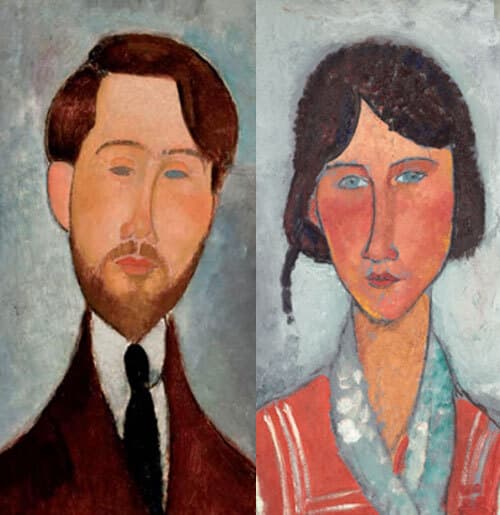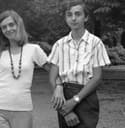Melissa Moschella,
To Whom Do Children Belong?: Parental Rights, Civic Education, and Children's Autonomy
(Cambridge University Press, 2017).
In his 1929 encyclical Divini Illius Magistri, Pope Pius XI wrote that a parent “holds directly from the Creator the mission and hence the right to educate the offspring, a right inalienable because inseparably joined to the strict obligation, a right anterior to any right whatever of civil society and of the State, and therefore inviolable on the part of any power on earth.” The struggle between parental rights and the motivations of the state to form citizens within its ideology is not a new conflict. This struggle, however, has been greatly exacerbated today by the state’s embrace of a comprehensive sex education policy, now informed by new definitions of gender.
It is obvious to a person who has any degree of proximity to the public school system in America that the mandate of the public schools has expanded significantly with the rise of sex education and that such an expansion is especially alarming when it gives transgender ideology the sanction of the state. With the rise of two parents working outside of the home and the increasing economic pressure to move away from extended family, children who are in conventional school settings spend most of their days with either teachers or daycare providers. In the vast majority of cases, loving, compassionate individuals are guiding these children. Regardless of how loving and caring these educators are, however, there is no replacement for the child’s parents. So contends Dr. Melissa Moschella in her recent book To Whom Do Children Belong? Parental Rights, Civic Education and Children’s Autonomy.
Moschella speaks to the clash going on today between those who believe children belong to the greater community (the “it takes a village” mentality) and those who maintain that children still belong to their parents and that it is the task of the parents, not schools or the government, to raise them. Although a philosophical inquiry rather than a parenting book, Moschella’s text could still be recommended as required reading for all parents or those who strive to support parents in the great task of bringing a child to adulthood as a moral and virtuous individual.
Moschella describes the places and situations where parents are not legally allowed to be the primary voices in their children’s education, writing at one point about parents in Germany unable to homeschool their children even after it becomes clear that the school is going against the family’s cultural values, especially with sex-education. At another point, she directs readers towards New York City’s strict sex-education curriculum, the HealthSmart program, which parents cannot fully opt-out of for their children, despite the shockingly graphic sexual information presented to young students.
Public schools are not intrinsically bad, but issues arise with “policies that grant public schools a monopoly on public funding.” These policies “are inherently problematic because they make state-run schools the default option for educating one’s children.” Moreover, Moschella writes, these policies send “the false message that the state, rather than the parents, has primary responsibility and authority for children’s formal education” and “fail to respect the conscience right and primary educational authority of parents.”
Parental authority supersedes the state’s authority over children, Moschella argues, and it is parents that have the ultimate authority over their children. Certainly, “caring for children requires making decisions on their behalf and thus exercising authority over them; then it follows that parental authority is natural and original, primary to the state’s authority over children and in no way derived from it.” Therefore, it is not the state’s task to challenge the notion of identity, which is born within the family culture, or teach a definition of human sexuality that goes against the beliefs of the parents. The state—acting through the school—cannot take away the parents’ right to be the child’s primary educator, and this is especially the case when it comes to notions of gender and sexuality.
Parents do, Moschella writes, have a responsibility to teach their children about sexuality. They may, however, decide that what public schools teach about sexuality does not “convey a proper understanding of sexuality.” While some claim that “failing to provide comprehensive sexual education to children is tantamount to abuse or neglect” this definition of abuse and neglect “would effectively obliterate all parental discretionary authority and create a warrant for constant state surveillance.” Ultimately, the push for state-run sex education erodes the natural rights of the individual.
Although teachers and other educators play an important role in the life of a child, their influence cannot overshadow the role of the parent:
[T]he relationship with parents, as the only one that is the cause of the child’s biological existence and identity, is clearly the closest. Thus it is the parents who have the strongest special obligation to foster the child’s well-being. Since parents’ special obligation is based on a relationship that is permanent, their special obligation for the child’s well-being is likewise permanent, although as the child matures the concrete implications of that obligation change significantly.
This “special obligation” of the parents is to be the primary educators of their children, but also to protect them from premature or unnecessary exposure to sexual education curricula or indoctrination into the belief that gender is changeable. Moschella echoes Pope Pius XI’s message that parental rights are “inviolable on the part of any power on earth.”
Katie Schneider completed graduate studies in literature at Duquesne University and now lives in Philadelphia with her husband.
Keep reading! Click here to read our next article, A Pastoral Approach to Gender Dysphoria.
Katie Schneider completed graduate studies in literature at Duquesne University and now lives in Philadelphia with her husband.



